第15章 CHAPTER III THE RESCUE(3)
As might have been expected in so excitable a man, he was in a terrible state of agitation. Thankfulness at the escape of his only, beloved child, rage with the Kaffirs who had tried to kill her, and extreme distress at the loss of most of his property--all these conflicting emotions boiled together in his breast like antagonistic elements in a crucible.
The resulting fumes were parti-coloured and overpowering. He rushed up to me, blessed and thanked me (for he had learnt something of the story of the defence), called me a young hero and so forth, hoping that God would reward me. Here I may remark that _he_ never did, poor man. Then he began to rave at Leblanc, who had brought all this dreadful disaster upon his house, saying that it was a judgement on himself for having sheltered an atheist and a drunkard for so many years, just because he was French and a man of intellect. Someone, my father as a matter of fact, who with all his prejudices possessed a great sense of justice, reminded him that the poor Frenchman had expiated, or perchance was now expiating any crimes that he might have committed.
This turned the stream of his invective on to the Quabie Kaffirs, who had burned part of his house and stolen nearly all his stock, making him from a rich man into a poor one in a single hour. He shouted for vengeance on the "black devils," and called on all there to help him to recover his beasts and kill the thieves. Most of those present--they were about thirty in all, not counting the Kaffir and Hottentot after-riders--answered that they were willing to attack the Quabies.
Being residents in the district, they felt, and, indeed, said, that his case to-day might and probably would be their case to-morrow. Therefore they were prepared to ride at once.
Then it was that my father intervened.
"Heeren," he said, "it seems to me that before you seek vengeance, which, as the Book tells us, is the Lord's, it would be well, especially for the Heer Marais, to return thanks for what has been saved to him. I mean his daughter, who might now very easily have been dead or worse."
He added that goods came or went according to the chances of fortune, but a beloved human life, once lost, could not be restored. This precious life had been preserved to him, he would not say by man--here he glanced at me--but by the Ruler of the world acting through man.
Perhaps those present did not quite understand what he (my father) had learned from Hans the Hottentot, that I, his son, had been about to blow out the brains of Marie Marais and my own when the sound of the shots of those who had been gathered through the warning which I left before I rode from the Mission Station, had stayed my hand. He called upon the said Hans and Marie herself to tell them the story, since I was too weak to do so.
Thus adjured, the little Hottentot, smothered as he was in blood, stood up. In the simple, dramatic style characteristic of his race, he narrated all that had happened since he met the woman on the veld but little over twelve hours before, till the arrival of the rescue party.
Never have I seen a tale followed with deeper interest, and when at last Hans pointed to me lying on the ground and said, "There is he who did these things which it might be thought no man could do--he, but a boy," even from those phlegmatic Dutchmen there came a general cheer. But, lifting myself upon my hands, I called out:
"Whatever I did, this poor Hottentot did also, and had it not been for him I could not have done anything--for him and the two good horses."
Then they cheered again, and Marie, rising, said:
"Yes, father; to these two I owe my life."
After this, my father offered his prayer of thanksgiving in very bad Dutch--for, having begun to learn it late in life, he never could really master that language--and the stalwart Boers, kneeling round him, said "Amen." As the reader may imagine, the scene, with all its details, which I will not repeat, was both remarkable and impressive.